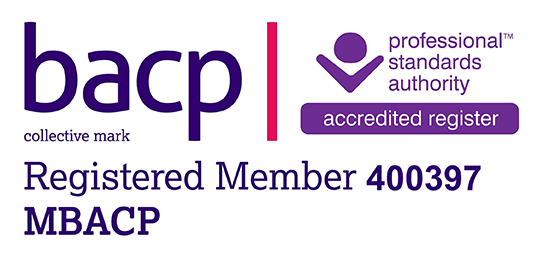An evidence informed introductory course for you, or those you know living with ADHD.
ADHD is not trauma.
I’m Stephen King, MBACP, ADHD-CCSP here to take you through this 15 part introductory course on understanding and managing ADHD. I work with people with ADHD live more fulfilled lives, and providing this course, based on the psychiatric and neuroscientific evidence means I can help more people at once.
You can access funding from the UK government via the Access to Work grant for ADHD coaching. Here you can raise a sum of money to use with us to help you living with your ADHD.

Who is this course for?
- People who are formally diagnosed with any type of ADHD
- People who have self diagnosed ADHD
- People who are living with someone with ADHD
- People who are working with someone with ADHD
This course is fully subtitled and is certificated upon completion.
What is included in the course?
In this course you will be taken through an introduction to ADHD including it’s causes, diagnosis, psychopharmacology and management. The video content has been delivered in an ADHD friendly way with short videos which can be revisited time and again, with the whole course being no longer than 90 minutes.
This means if you are living with ADHD and wanting to enrol – but are worried about finishing it, you stand a good chance of watching everything before your attention deviates.
See what’s included



Introduction
This is an introduction to the course, what you can expect and who is teaching the course – that’ll be me! Stephen King MBACP, ADHD-CCSP, an integrative therapist and ADHD coach. I work with people who have ADHD live more fulfilled lives by coaching them with the model I’ve created called the “modifications/accommodations” model, which is a strength based approach to managing this neuro-developmental disorder.
What is ADHD?
In this session we will look at what ADHD is, and what it isn’t. ADHD is not trauma. In beginning to understand how this neuro-developmental disorder presents itself, we must first look at what it is. ADHD is classified as a disorder. Why? Because it impedes societal function, particularly when it comes to executive function.
Heritability and Diagnosis?
In this session, we explore how we get ADHD and how it can be officially diagnosed. I am all for a self diagnosis, however if you are self diagnosed, you cannot be eligible for medication. A psychiatrist or an ADHD nurse can diagnose ADHD and prescribe medication. Medication may need to be reviewed at different intervals.
The different types of ADHD
In this session we examine the different types of ADHD. We begin to explore the symptoms of an ADHD presentation as per the DSM-V (Diagnostic Statistical Manual of Mental Disorders, 5th edition).This session also briefly covers the differences between the diagnostic labels of: Inattentive, Hyperactive, Combined (mild, moderate, severe)
The Symptoms of Hyperactivity
This session is all about looking at the main symptoms of a hyperactive based ADHD presentation. In adults, hyperactivity can look like an “inner restlessness” rather than hyperactivity, with a ‘motor’ always running.
The Symptoms of Inattention
Here we begin to look at the symptoms of inattention, and how these can effect daily living. We begin to dive into ‘Executive function’ which is how we are able to process basic demands on our time, and resources such as getting in the car to go to the shop to buy the food we need to eat.
How is ADHD diagnosed?
In this video, we look at the typical diagnostic session, exploring briefly who can diagnose you and when.
Comorbidities with ADHD
Comorbidities can be seen as a horrible word as it’s meaning is around the other disabilities that come adjunct to the disorder. In this session, we explore what else might be prevalent in a diagnosis of ADHD that isn’t ADHD but might come as part of the package.
Social Impairments with ADHD
This session is all about a brief overview of what it might look like sociologically when someone has ADHD. These social impairments can include presentations such as difficulties concentrating whilst driving or other motor tasks, as well as difficulties learning and playing.
What if you have some of the symptoms, but don’t have ADHD?
This video is a bit of a wildcard video, suggesting pursuing an assessment even if you don’t meet all of the criteria as something else might be going on. There are other diagnostic entities surrounding ADHD, present in the gene modifications such as VAST, varying attention stimulus trait.
Management for ADHD
It’s in this session that we briefly look at the modifications/accommodations model, which at it’s very centre is a strength based approach based on unconditional positive regard.
Time Blindness
Time blindness is real, and it can cause a lot of stress for people trying to live socially acceptable lives with ADHD. We explore some of the supposed mechanisms of time blindness, looking at what might be done about this debilitating part of an ADHD presentation.
Medication for ADHD
This is a brief overview of some of the medications. NOTE: I am not a pharmacist, medically trained or have any formal training in psychopharmacology. This is advice based on the literature that currently exists in journals.
Psychosocial interventions for ADHD
This session takes a look at some of the things we can do to accommodate those living with ADHD, and also looks at how we might be able to modify our own behaviours with some basic interventions, centred around kindness and alleviating shame.
Concluding and next steps
If you have made it this far, congratulations! You’re at the end of this level 1 introduction to understanding ADHD! This is a final summary and encourages you to seek a formal diagnosis so that you might be able to live a more fulfilled life.
Reference list
-
American Psychiatric Association. (2013). Diagnostic and Statistical Manual of Mental Disorders (5th ed.). Washington, DC: Author.
-
de Oliveira Rosa, V., Rosa Franco, A., Abrahão Salum Júnior, G., Moreira
-
Maia, C. R., Wagner, F., Simioni, A., … & Paim Rohde, L. A. (2020). Effects of computerized cognitive training as add-on treatment to stimulants in ADHD: a pilot fMRI study. Brain Imaging and Behavior, 14(5), 1933- 1944.
-
Hastings, E., Poon, J., Robert, S., & Nyp, S. S. (2019). Attention-Deficit Hyperactivity Disorder, Disruptive Behaviors, and Drug Shortage. Journal of Developmental & BehavioralPediatrics, 40(6), 489-491.
-
Kollins, S.H. and R.A. Adcock. 2014. ADHD, altered dopamine neurotransmission, and disrupted reinforcement processes: Implications for smoking and nicotine dependence. Progress in Neuro- Psychopharmacology and Biological Psychiatry. 52, 70-78. Available online February 18, 2014. Doi: 10.1016/j.pnpbp.2014.02.002.
-
MacIntosh, B.J., D.E. Crane, M.D. Sage, A.S. Rajab, M.J. Donahue, W.E. McIlroy, and L.E. Middleton. 2014. Impact of a single bout of aerobic exercise on regional brain perfusion and activation responses in healthy young adults. Published January 8, 2014 on PLOSOne. Doi: 10.1371/journal.pone.0085163.
-
Mohammadpour, N., Jazayeri, S., Tehrani-Doost, M., Djalali, M., Hosseini, M., Effatpanah, M., … & Karami, E. (2018). Effect of vitamin D supplementation as adjunctive therapy to methylphenidate on ADHD symptoms: a randomized, double blind, placebo-controlled
trial. Nutritional neuroscience, 21(3), 202-209.
-
Molina, B.S.G., S.P. Hinshaw, L.E. Arnold, J.M. Swanson, W.E. Pelham, L. Hechtman, et al. 2013. Adolesent substance abuse in the multimodal treatment study of attention-deficit/hyperactivity disorder (ADHD) (MTA) as a function of childhood ADHD, random assignment to childhood treatments, and subsequent medication. American Academy of Child and Adolescent Psychiatry, 52(3):250-263.
-
Puzino, K., Bourchtein, E., Calhoun, S. L., He, F., Vgontzas, A. N., Liao, D., … & Fernandez- Mendoza, J. (2021). Behavioral, neurocognitive, polysomnographic and cardiometabolic profiles associated with obstructive sleep apnea in adolescents with ADHD. Journal of Child Psychology and Psychiatry.
-
Roy, M., de Zwaan, M., Tuin, I., Philipsen, A., Brähler, E., & Müller, A. (2018). Association between restless legs syndrome and adult ADHD in a German community-based sample. Journal of attention disorders, 22(3), 300-308.
-
Rucklidge, J. J., Taylor, M. R., & Johnstone, J. M. (2018). Do diet and nutrition affect ADHD? Facts and clinical considerations. Psychiatric Times, 35(9), 15-16.
-
Sánchez-López, J., T. Fernández, J. Silva-Pereyra, and J.A. Martínez Mesa. 2013. Differences between judo, taekwondo and kung-fu athletes in sustained attention and impulse control. Psychology 4(7):607-612.
-
Shanmugasundaram, P., & Rujaswini, T. (2019). A Review on Food Coloring Agents-Safe or Unsafe?. Research Journal of Pharmacy and Technology, 12(5), 2503-2505.
-
Shaw, P., M. Malek, B. Watson, D. Greenstein, P. De Rossi, and W. Sharp. 2013. Trajectories of cerebral cortical development in childhood and adolescence and adult attention- deficit/hyperactivity disorder. Biological Psychiatry 74(8):599-606.
-
Snitselaar, M. A., Smits, M. G., van der Heijden, K. B., & Spijker, J. (2017). Sleep and circadian rhythmicity in adult ADHD and the effect of stimulants: a review of the current
literature. Journal of attention disorders, 21(1), 14-26.
-
Steiner, N.J., E.C. Frenette, K.M. Rene, R.T. Brennan, and E.C. Perrin. 2014. Neurofeedback and cognitive attention training for children with attention-deficit hyperactivity disorder in schools. Journal of Developmental & Behavioral Pediatrics 35:18-27.
-
Trick, L.M. and R. Toxopeus. 2013. How missing a treatment of mixed amphetamine salts extended release affects performance in teen drivers with ADHD. Proceedings of the Seventh International Driving Symposium on Human Factors in Driver Assessment, Training, and Vehicle Design.
-
Urbano, G. L., Tablizo, B. J., Moufarrej, Y., Tablizo, M. A., Chen, M. L., & Witmans, M. (2021). The Link between Pediatric Obstructive Sleep Apnea (OSA) and Attention Deficit Hyperactivity Disorder (ADHD). Children, 8(9), 824.
-
Zhou, Z., Betts, K. A., Bocharova, I., Kinrich, D., & Spalding, W. M. (2020). Concomitant use of psychotropic medication with stimulants for the treatment of ADHD in children and adolescents: A retrospective insurance claims study in the United States. Journal of attention disorders, 24(2), 336-347.


